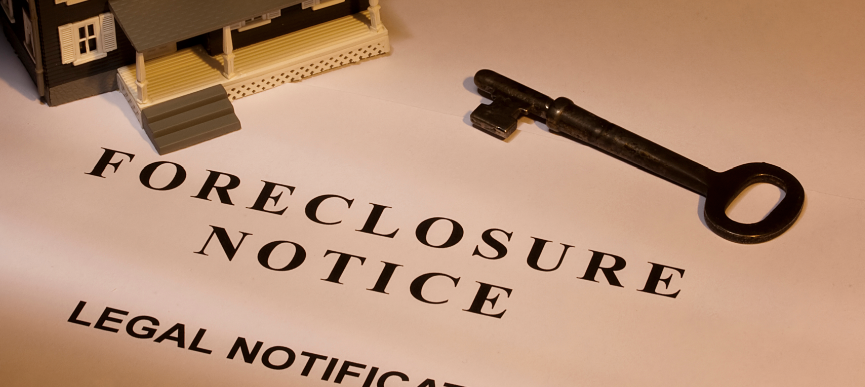1) Stay Calm and Don’t Panic.
This might sound like the most obvious piece of advice, but it’s arguably the most important. Facing foreclosure is one of the most stressful situations a homeowner can experience, and it often feels overwhelming. The emotional toll of potentially losing your home can be immense, especially if it’s tied to financial hardships, personal struggles, or family stress. However, it’s critical to remember that foreclosure is a process that doesn’t happen overnight. It’s not the end of the road, and there are options available to help you through it.
Staying calm allows you to think more clearly and make better decisions. Panicking can cloud your judgment, making it more likely that you’ll make rash decisions that could worsen your situation. Focus on taking one step at a time, and don’t be afraid to lean on trusted family members or friends for emotional support. Make sure to take care of yourself physically, emotionally, and mentally. By managing your stress, you’ll be in a better position to navigate the next steps effectively and with confidence.
2) Educate Yourself About the Foreclosure Process.
Foreclosure laws and procedures vary from state to state, so it’s crucial to understand how the process works where you live. Foreclosure is a legal process where a lender seeks to recover the balance of a loan from a borrower who has stopped making payments. The exact timeline and methods for foreclosure can differ, but in general, it involves a series of steps that typically include notices, court hearings, and eventual sale of the property.
Take the time to read up on your state’s foreclosure laws, including the timeline for foreclosure, the right to reinstate your loan, and potential defenses you might have. Knowledge is power, and understanding the process will help you stay ahead of deadlines and protect your rights. Many resources are available online, including state government websites and foreclosure-focused organizations. You may also want to contact a real estate attorney or a foreclosure specialist to ensure you fully understand your situation and the steps you need to take.
3) Gather Your Resources.
Foreclosure is a complex process, and it can be difficult to navigate on your own, especially when financial strain is involved. The good news is there are many resources available to help homeowners in distress. Seek out non-profit organizations, government programs, and legal professionals who specialize in foreclosure prevention. Many agencies and charities offer free or low-cost services, such as financial counseling, legal advice, and assistance with negotiating with your lender.
Consider speaking with a HUD-approved housing counselor who can help you explore different foreclosure prevention strategies, including loan modification or repayment plans. A foreclosure attorney can also provide valuable guidance, helping you understand your rights and representing you in any legal proceedings. Don’t hesitate to reach out for professional advice or assistance—this is not a situation you should face alone. In fact, working with the right resources can significantly improve your chances of finding a viable solution.
4) Learn Your Options.
While foreclosure may seem like the only option, it’s important to know that you likely have other alternatives. There are several ways to avoid foreclosure, and many of them can help you either keep your home or minimize the damage to your financial future. Here are some common options to consider:
- Loan Modification: This option involves negotiating with your lender to change the terms of your mortgage, such as reducing the interest rate, extending the repayment period, or temporarily lowering payments. Many homeowners can work out a loan modification if they are facing temporary financial hardship.
- Forbearance: Forbearance is a temporary reduction or suspension of your mortgage payments. If you’re going through a financial hardship, like a job loss or medical emergency, your lender may agree to allow you to make smaller payments or pause payments for a period of time.
- Short Sale: If you owe more on your home than it’s worth, a short sale may be an option. In a short sale, the lender agrees to allow you to sell your home for less than the remaining mortgage balance. While this option won’t save your home, it can help avoid the negative impact of foreclosure.
- Deed in Lieu of Foreclosure: This involves voluntarily transferring the deed of your property to the lender in exchange for the cancellation of your debt. While you lose your home, this option can be less damaging to your credit than foreclosure.
- Rent-Back or Lease-Back: In some cases, you may be able to negotiate with your lender to sell the property but continue living there as a tenant. This is called a rent-back or lease-back situation. It can allow you to stay in your home and avoid the immediate displacement associated with foreclosure.
It’s important to work with your lender to explore these options. Many banks and mortgage companies are willing to work with homeowners who are struggling, especially if you communicate with them early and provide them with the information they need. It’s better to take proactive steps than to wait until the situation escalates.
5) Communicate With Your Lender.
One of the most common mistakes homeowners make during foreclosure is avoiding communication with their lender. If you’re in danger of foreclosure, the best thing you can do is open up a line of communication. While it might feel intimidating, remember that the bank doesn’t want your house—they want the money owed to them. A proactive approach can go a long way in finding a solution that works for both parties.
If you haven’t already, contact your lender as soon as possible to discuss your situation. Be honest about your financial difficulties and ask about options to prevent foreclosure. Many lenders offer loss mitigation departments dedicated to helping homeowners in distress. In some cases, they may be willing to offer payment forbearance, loan modification, or other solutions to avoid foreclosure.
If you’ve received a foreclosure notice, do not ignore it. Respond promptly, and if necessary, request a meeting to discuss your options. Sometimes, it may be possible to negotiate a temporary delay or stop the foreclosure process altogether, especially if you’re actively trying to find a solution.

